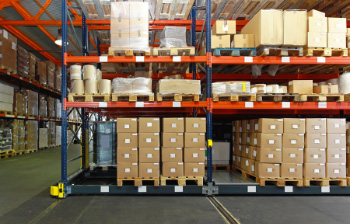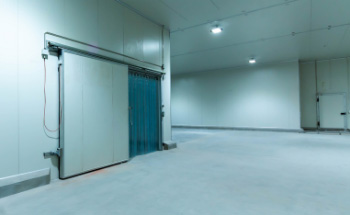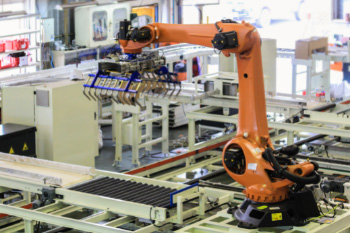Common Warehouse types explained
Introduction
There are various warehouse types that can be used to store goods. Each different warehouse design is targeted at a specific need and it is important to explore your options before making a warehousing decision. Whether you’re looking for short term or long term storage, finding the right warehouse for your needs is important. This blog will outline different warehouses types and the types of benefits that they provide.
Public/Government Warehouse
Government warehouses, otherwise known as public warehouses, are government-owned facilities. The main objective of a government warehouse is to provide small businesses with a safe place to store their goods at a reasonable price. Businesses can use public warehouse space for as short or long as needed and as long as they pay their bills, can always count on having a spot for excess goods.
Private Warehouse
Private warehouses, also known as proprietary warehousing, are privately owned and operated facilities. They are frequently owned by larger companies that have the capital to build and run these facilities. Private warehouses offer companies the most control and access to their goods. Companies who operate private warehouses are often larger retail stores or companies that have several locations. They may build warehouse space close to these locations in order to have quick and easy access to a large supply of goods. The various benefits that come with a private warehouse are very appealing if the capital is available.

Distribution Centre
Distribution centres are warehouses that would generally be used for short-term storage and are more of an in-between location for businesses. Modern distribution centres are impressive buildings that have the infrastructure to provide fast and reliable movement of goods. Creating an environment with the proper resources to promote efficiency creates a much smoother distribution process. Distribution centres are a pivotal aspect of our world and play an important part in getting goods to the customer.
Temperature and Climate Controlled Warehouses
Temperature and climate-controlled warehouses are pillars of various industries. Ranging from the food industry to the furniture industry, goods must be stored in an environment that will keep them at peak standards.
Temperature Controlled
The first version of controlled warehouses is the temperature-controlled warehouse. These warehouses use heating and cooling systems within their facilities to control the temperature. The temperature is set at a point that aligns with the needs of the goods being stored.
Types of products found in a Temperature Controlled Warehouse:
-
- Perishable food and beverages
- Supplements
- Vaccines
Climate Controlled
Climate-controlled warehouses are an advanced version of temperature controlled. They control the humidity in the warehouse, as well as the temperature.
Types of products found in a climate-controlled warehouse:
-
- Paintings
- Paper
- Wine
- Wooden Items

Co-operative Warehouse
Co-operative warehouses align with the common understanding of the co-operative type of setup. They are owned and operated by co-operative groups who provide storage to members of the co-op. The goal of these warehouses is not to make a profit, but to provide an economical option to members. They aim to gather enough funds to cover the operating costs of the warehouse.
Bonded Warehouse
Bonded warehouses are typically owned and operated by the government or private businesses who have been given approval. They are a place for imported goods to go before customs duties are applied. Goods brought to bonded warehouses are not subject to duties as they enter the country. Duties are instead applied once they leave the warehouse.
Bonded warehouses provide advantages to businesses that frequently import or export goods. They can move goods to or from foreign countries without taking further overhead costs with the duty fees. They can instead store the goods in a bonded warehouse until they can find a buyer. These financial benefits can add up in the long run and make it easier for businesses to operate in foreign markets.
Consolidated Warehouses
Consolidated warehouses are a key component of LTL shipping. They are warehouses that take smaller shipments from various shippers. These shipments are then consolidated into groups that align with their destinations. Similar shipments are grouped together, allowing the carrier to have a streamlined delivery.
Consolidated warehouses pass the savings on to several businesses throughout each consolidation process. Allowing businesses to easily ship their goods LTL can create significant cost savings in the long run. Check out our blog on LTL to learn more about how these shipments work and their benefits.
Smart Warehouse
Smart warehouses are the most recent development in the warehouse game. They are facilities that have automated the storage and fulfillment process. The automation works throughout the entire process in the warehouse and goods are sent through the chain without a significant need for human interaction. A major user of the smart warehouse system is Amazon. Amazon is an e-commerce giant that moves massive numbers of items in and out of its warehouses every day. It is reported that in the US alone, they are 200,000 robots in operation within their warehouses. These robots are in place to ensure autonomy and reduced error throughout the shipping process. Overall, smart warehouses encompass autonomous technology in a way that makes the warehousing process efficient.

Conclusion
There are various warehouses that are available and finding the right one is important. The correct decision can help you save money and ensure that your goods are kept in a safe place. In conclusion, warehousing is an important part of several industries and there are plenty of options out there that can fit the needs of your business.
We thank you for your time. We are always open to answering any questions. Reach out to us today through operations@wood-hall.com or give us a call at 519-213-1000!
-The Team at Wood-Hall Logistics

